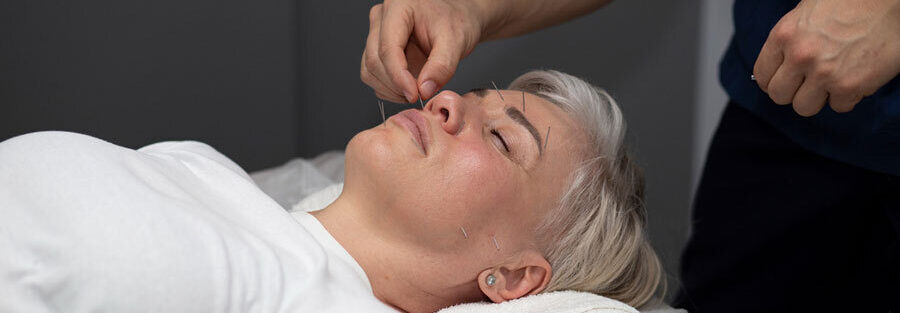Acupuncture in treating depression is believed that can have success by alleviate depression symptoms by regulating body’s energy flow and releasing endorphins, which are natural painkillers.
Depression, a mental disorder, is an emotional condition that affects a person’s wellbeing, mental and physical health. Symptoms of depression vary from person to person, ranging from feeling low to extreme fatigue and lack of motivation. Acupuncture in treating depression has been gaining momentum in recent years as a natural remedy for depression.
Acupuncture is a traditional Chinese medicine that involves the insertion of thin needles into specific points of the body to treat various medical conditions. In this article, we will take a look at how acupuncture works, the benefits and risks of using acupuncture for depression, and how it can be effective in reducing stress, anxiety, improving mood, and relieving pain. Let’s get started!
Health is the greatest possession. Contentment is the greatest treasure. Confidence is the greatest friend. Non-being is the greatest joy.
Laozi
What is Acupuncture?
Acupuncture is an ancient Chinese healing practice for centuries to promote health and well-being. It is based on the belief that energy, or “chi,” flows through the body in meridian channels. Each meridian is associated with different organs and elements of the body, and when the energy, or “chi,” is blocked, pain and illness can result. Acupuncture aims to unblock the energy and allow the body to heal itself.
Acupuncture is performed by inserting skinny, sterile needles into targeted areas of the skin, or “acupoints,” which are found along the meridians. This is thought to stimulate the body, allowing it to heal itself naturally. The stimulation of certain acupoints can also help enhance the body’s natural healing abilities, reduce stress levels, improve circulation, and increase general well-being.
In recent years, acupuncture has been increasingly used as an alternative form of treatment for depression and mental health issues such as anxiety and stress. Research has suggested that acupuncture may be effective in reducing the symptoms of depression, making it a potentially viable option for those looking for an alternative to traditional treatments such as medication and cognitive behavioral therapy.
Acupuncture for depression works by stimulating the central nervous system, which may help reduce stress hormone levels and create a state of relaxation and well-being. It is also believed to help reduce nervousness and improve overall mood.
In addition to its potential for treating depression, acupuncture may also help to prevent relapses, as it can help to reduce stress levels, which can act as a trigger for depression in some people. Some studies have also suggested that acupuncture may have other beneficial effects, such as improving sleep quality, boosting energy levels, and increasing overall quality of life.
Overall, acupuncture is thought to be a safe and effective natural remedy for depression. It is important to note, however, that acupuncture should not be used as a replacement for traditional treatments. It is best used as an adjunct to traditional treatments, such as medication and cognitive behavioral therapy, in order to maximize its potential benefits.
How Does Acupuncture Work?
Acupuncture is a complementary and alternative medicine (CAM) therapy that has been used for centuries to treat a variety of ailments. It is based on the ancient Chinese concept of Qi, which is the vital energy that flows through the body and is believed to be essential for health and wellbeing.
According to the philosophy of acupuncture, physical, mental, and emotional imbalances can be addressed by stimulating certain points along the body’s pathways, known as meridians. These stimulation points are typically accessed through the insertion of hair-thin needles.
When applied for depression, acupuncture is thought to influence the body’s metabolism, hormones, and neurotransmitters, such as serotonin and dopamine. Stimulating specific acupuncture points is believed to target these molecules and block the uptake of neurotransmitters that can cause depressive symptoms.
It is also believed to promote the production of endorphins, which are associated with feelings of pleasure and well-being. Studies of acupuncture for depression have shown promising results, with several studies demonstrating a reduction in depressive symptoms after the treatment.
Overall, acupuncture may help to modulate a variety of physiological and psychological processes involved in depression, offering a potential alternative or complementary treatment to traditional depression medications. It is important to note, however, that acupuncture is not a substitute for appropriate medical care, and it is important to consult a physician regarding any mental health concerns or diagnoses.
Benefits of Acupuncture In Treating Depression
Acupuncture is an ancient Chinese practice that utilizes needles to stimulate specific points on the body in order to bring balance and harmony to the person. It is increasingly being used to treat depression, and the results are promising. Studies show that acupuncture can help to reduce symptoms of depression, such as sadness, fatigue, and irritability, as well as improve mood and overall emotional wellbeing.
The main benefit of using acupuncture in treating depression is its ability to reduce stress and anxiety. By stimulating certain points on the body, acupuncture can help to release endorphins, which are brain chemicals that are known to reduce stress, improve mood and promote relaxation. Studies show that acupuncture can induce a feeling of calmness and relaxation, and these feelings can be especially beneficial for those with depression.
Acupuncture can also help to alleviate the physical symptoms associated with depression. It may increase blood flow to the brain, allowing for more oxygen and nutrients to reach the cells. This can help to improve energy levels, reduce fatigue, and improve mental clarity. Additionally, acupuncture can help to regulate hormones, which can help to improve mood and help to balance out the hormones associated with depression.
Preliminary studies suggest that acupuncture may also help to improve sleep. People with depression often experience difficulty sleeping or insomnia, and acupuncture can help to reduce insomnia and improve the overall quality of sleep.
Finally, acupuncture may help to reduce the severity and frequency of depressive symptoms. Studies show that regular acupuncture treatments can help to reduce the severity and frequency of depressive symptoms. This can be especially beneficial for those with chronic or recurring depression who may experience severe episodes.
Overall, acupuncture has many potential benefits for those with depression. It can help to reduce stress and anxiety, improve mood, and alleviate physical symptoms. Additionally, it may help to improve sleep and reduce the severity and frequency of depressive symptoms, making it a valuable treatment for those with depression.
[quads id=6]
Reduced Stress and Anxiety
Acupuncture has been used to reduce stress and anxiety in individuals who suffer from depression. Studies have shown that acupuncture can help to improve the symptoms associated with depression, including reducing stress and anxiety levels. Acupuncture is thought to reduce depression by balancing the body’s energy, which can reduce stress levels and improve overall well-being.
Additionally, the acupuncture process itself can provide a relaxing and calming environment, which can make it easier to manage stress and anxiety. By providing a safe and effective treatment option to reduce stress and anxiety, acupuncture can be an invaluable resource for those suffering from depression.
Improved Mood
Acupuncture has been credited with improving moods and relieving depression symptoms. In some studies, it was found to be as effective as antidepressant medications in treating depression. Specifically, traditional Chinese acupuncture has been proven to be safe, non-invasive and effective in reducing symptoms of depression, including improving moods and overall quality of life.
Additionally, a review of studies found that Acupuncture for depression was successful in helping to manage symptoms related to depression. This further lends to the notion that acupuncture is an effective and natural treatment for depression.
Improved Sleep Quality
Acupuncture for depression can have a positive impact on sleep quality. Research shows that acupuncture can decrease the time it takes for a patient to fall asleep and can improve their overall sleep quality.
Patients with depression often struggle with insomnia and other sleep issues, which can be treated with acupuncture. These treatments can work alongside other therapies or medications to improve overall sleep quality and reduce the symptoms of depression.
Reduced Pain
Acupuncture has been used to treat physical and mental ailments for centuries, and in recent years, research has been conducted to look into how acupuncture can be used to treat depression. Studies have found that acupuncture can help alleviate depression symptoms due to the way it improves blood circulation, increases serotonin levels, and has a calming effect on the nervous system.
Additionally, acupuncture has been found to reduce physical pain, making it an important component in treating depression. Acupuncture can reduce pain levels and reduce sensitivity to pain, providing relief from the discomfort associated with depression. Acupuncture is a safe and effective method to treat depression and can be used in combination with other treatments, such as medication and talk therapy, to enhance their effectiveness.
Risks of Acupuncture for Depression
Acupuncture has become a popular alternative treatment for depression, but like any medical treatment, it carries its own set of risks. Although it is generally considered to be a safe procedure, it is important to understand the potential risks associated with it before beginning treatment.
The most common risk associated with acupuncture is pain. While the stimulation of the needles may feel uncomfortable, it should not be overly painful. If the pain becomes too intense, the patient should communicate with their acupuncturist and they can adjust the treatment accordingly. Some people have reported feeling dizzy or nauseous after the treatment, and they should consult a medical professional if this continues after the session.
There is a risk of developing an infection from the needles used in acupuncture. In order to minimize this risk, the acupuncturist should always use sterile needles that have not been used before. Patients should also ensure that the acupuncturist is licensed and follows proper safety and sanitation protocols.
Despite the potential risks, acupuncture has been found to be an effective treatment for depression. However, it should not be used as a substitute for traditional medical interventions. Patients may need to combine acupuncture with other therapies, such as cognitive behavioral therapy or antidepressant medications, to get the most benefit from the treatment. It is important to discuss any concerns with a medical professional before beginning any type of alternative treatment.
[quads id=4]
Conclusion
In conclusion, acupuncture has become a widely accepted method in treatment depression symptoms. Its effectiveness and positive effects on mental health have been widely documented, leading many to believe that acupuncture has the potential to revolutionize the way depression and other mental health disorders are treated. Acupuncture is a safe and non-invasive treatment that can help reduce stress, improve mood, improve sleep quality, and even reduce chronic pain.
Though there are some rare complications that may occur, the risk of complications is typically low. Ultimately, acupuncture is a holistic, side-effect free approach to treating the symptoms of depression that can offer both short-term and long-term relief. As such, it should be considered as a viable therapeutic option for those dealing with depression or other mental health challenges.










































